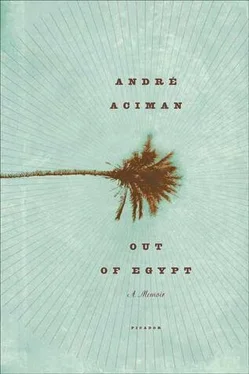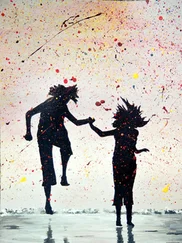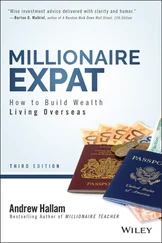I looked at the apartment, incredulous at how much larger it was without furniture.
I tried to remember the first time I had seen it, five years earlier. My grandmother and I had gotten lost in it, mistaking our way through doors and corridors, watching the workers sanding the floors and putting up a wall to create an additional room for someone called Madame Marie. I remembered the kitchen talk in the month of Ramadan, the smell of fresh paint and of newly restained furniture and of Mother’s jasmine, and the window she threatened to throw herself from each time she thought she’d lose my father. I remembered Mimi and Madame Salama. They had moved to Israel. Monsieur Pharès lived in Florida; Abdel Hamid was paralyzed from the waist down; and Madame Nicole’s husband had converted to Islam and finally repudiated her for behavior unbecoming a wife. Fawziah worked for an Egyptian family who treated her poorly. Monsieur al-Malek was now a second-tier schoolteacher in Marseilles waiting for a pension. And Abdou’s son, Ahmed, so full of kindness, was shipped back from Yemen after a guerrilla patrol had captured and beheaded him.
Then, without warning, Aunt Flora, too, received a telephone call. In her case, the voice informed her that she had two weeks to leave Egypt. She left, as did other family friends, in the fall of that year, just a few days after we moved to Sporting. We knew our turn would come.
Aunt Elsa used to say that when bad things happen they come in threes. If you broke two plates, no one was really surprised when a third fell from your hands. If you cut yourself twice, you knew that a third cut was already hovering, waiting for the perfect alignment of sharp object and skin. If you got scolded twice, if you failed two tests, or lost two bets, you simply cowered for a few days and tried not to look too dismayed when the third blow came. When it did come, however, you would never say it was the last of the three. You had to pretend that a fourth might follow or that perhaps you had counted wrong or that this millennial rule had just been changed to confound you. That was called tact. It meant you were not presumptuous and would never dare trifle with the inscrutable machinations of fate.
Of course, we always sensed that our midnight caller knew exactly how we thought about these things. He would call twice and then not call again that night, knowing we would not go to bed until his third call came. Or he would call three times, let us sigh in relief and then, just as everyone was getting ready to retire, call again. “Is he there?” the voice would ask, meaning my father. “No, we don’t want to speak with him. Just checking.” “Who were your guests tonight?” “What did you buy today?” “Where did you go?” And so on.
Harassment calls began to punctuate all our evenings — by their absence as much as by their presence — reminding us that what were agreeable family evenings could easily deteriorate into bitter feuds as soon as grandmother hung up the telephone. “But why did you have to answer. Didn’t I tell you not to?” my father would complain. “And why couldn’t you tell him where I was?” he would add. “Because I don’t think it’s his business,” his mother would reply. “But why do you persist in being rude to them? Why provoke them?” he would shout back at her. “Because this is what I felt like doing. Next time you answer.”
Part of the late-night caller’s ploy lay in calling when he knew my father was not home. Then, sometimes, thinking it was my father or even a friend calling late in the evening, I would pick up the receiver, and the stranger’s voice, seemingly so harmless, even obsequious, would begin saying things I knew I should know nothing about. At other times, it was a rough street vendor’s voice barking questions whose purpose I couldn’t fathom, much less know how to answer. He would always end with the same words: “Tell him we’ll call again tomorrow.”
A day would pass. Then another. Sometimes three. Then two phone calls in succession. No one would pick up. “Maybe it’s your father,” my grandmother would say. It wasn’t. Then no calls for another week.
Perhaps, the law of jamais deux sans trois didn’t hold after all. But then, just when you were on the verge of giving up on it, it showed signs of renewed regularity — just long enough, that is, to trick you again.
Now, it so happened that Aunt Elsa had had strange forebodings the week before the Egyptian government nationalized all of my father’s assets. Une étrange angoisse, a strange anxiety, right here, she kept repeating, pointing to her chest. “Here, and here, sometimes even here,” she would say, hesitantly, as though her inability to locate the peculiar sensation in her chest made it more credible. “Something always happens when I have these feelings.” She had had them on the eve of President Kennedy’s assassination. And back in 19914. And of course in 1939. Madame Ephrikian, warned by Aunt Elsa to leave Smyrna in 1922, still called her une voyante , a seer. “Seer my eye!” exclaimed my grandmother behind her back.
“She’s swallowed a cheap barometer, and it rattles inside her old rib cage. Whatever is itching her there, you can be sure it’s just her conscience.”
My grandmother was alluding to a quarrel the sisters had had over who would get Uncle Vili’s prized nineteenth-century barometer following his sudden escape from Egypt. Uncle Vili liked to hunt duck, so, naturally, the sisters quarreled over who would inherit his rifles as well. One day, the rifles, the barometer, and his golf clubs disappeared. “Les domestiques,” alleged Aunt Elsa. “Les domestiques my eye!” replied my grandmother. “She swallowed them, just as she’ll swallow everything we own one day.” “We don’t have to worry about that now,” interjected my father, “the Egyptian government has already thought of it.”
The news that my father had lost everything arrived at dawn one Saturday in early spring 1965. The bearer was Kassem, now the factory’s night foreman. He rang our bell, and it was my father who opened the door. Seeing his boss look so crushed on guessing the reason for his untimely visit, the young foreman immediately burst into a fit of hysterical crying. “Did they take her, then?” asked my father, meaning the factory. “They took her.” “When?” “Last night. They wouldn’t let me call you, so I had to come.” Both men stood quietly in the vestibule and then moved into the kitchen while my father tried to improvise something by way of tea. They sat at the kitchen table, urging one another not to lose heart, until both men broke down and began sobbing in each other’s arms. “I found them crying like little children,” was Aunt Elsa’s refrain that day. “Like little children.”
The crying had also awakened my grandmother, who, despite protestations that she never slept at night on account of the “troubles,” was a very sound sleeper. She shuffled all the way into the kitchen to find that Abdou, who had just come in through the service entrance, had also joined in the tears. “This is no good,” she snapped, “you’ll wake Nessim. What’s happened now?” “They took her.” “Took whom?” “But the factory, signora, what else?” he said using the pidgin word for factory, al-fabbrica.
My grandmother never sobbed. She got angry, stamped, kicked, and grew flushed. Aunt Elsa was right when she claimed that her sister cried out of rage — like Bismarck, the Iron Chancellor — and not out of sorrow. Her eyelids would swell and grow red, and with the corner of her handkerchief she would blot away her tears with flustered and persistent poking motions, as though, in her fury, she was determined to inflict more pain on herself. This was the ninth time she had seen the men in her life lose everything; first her grandfather, then her father, her husband, five brothers, and now her son.
Читать дальше












